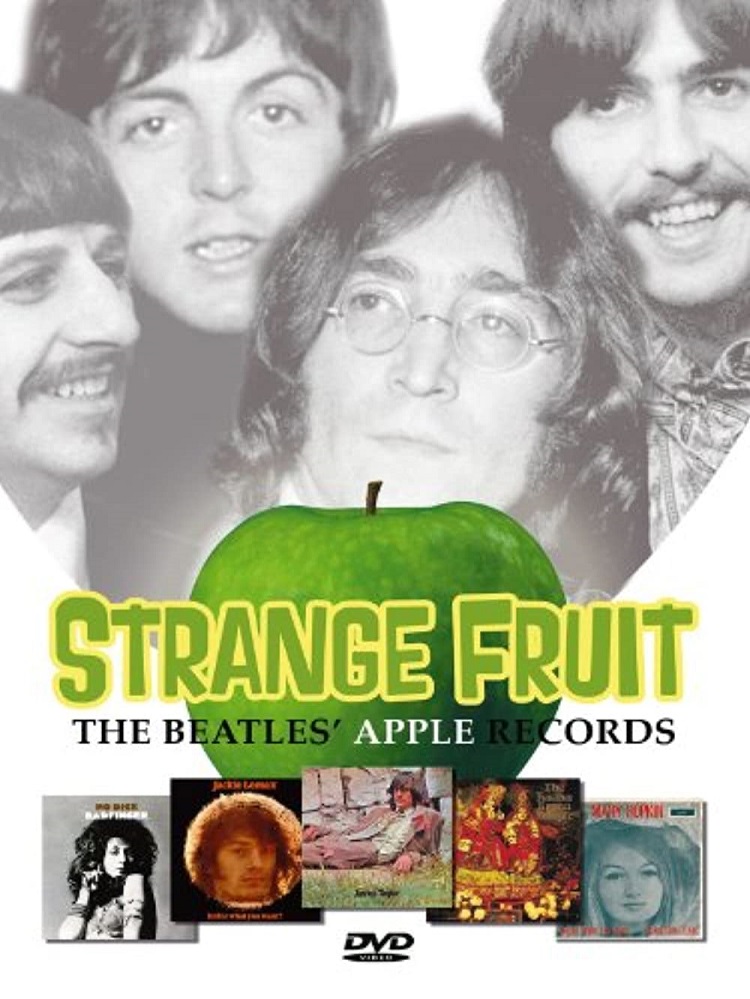
On May 11, 1968, John Lennon and Paul McCartney arrived in New York to announce a new business venture. Three days later, they addressed the media at New York’s Americana Hotel to explain the concept behind The Beatles’ new company, Apple. While Apple would combine films, electronics, and fashion, its chief purpose lay in its music label. “We want to set up a system whereby people who just want to make a film about anything don’t have to go on their knees in somebody’s office. Probably yours,” Lennon explained. McCartney added, “if you come and see me and say ‘I’ve had such and such a dream,’ I’ll say ‘Here’s so much money. Go away and do it.’ We’ve already bought all our dreams. So now we want to share that possibility with others” (for more of the press conference, visit The Beatles Ultimate Experience). In subsequent interviews, McCartney likened Apple to “controlled weirdness…a kind of western communism.”
Ultimately, this noble experiment failed in that Apple did not produce major stars (at least not while on the label, most notably Billy Preston and James Taylor) or make a significant dent in the film or fashion industries. However, The Beatles did introduce an interesting, if at times eccentric, roster of artists to the listening public, and this fact is chronicled in the DVD Strange Fruit: The Beatles’ Apple Records. The filmmakers take a close up look at the label’s inception, how it attracted its acts, and why the project eventually folded. Featuring interviews with past Apple artists Jackie Lomax, David Peel, Brute Force, Joey Molland (Badfinger), Ron Griffiths (The Iveys), and Elephant’s Memory’s Gary van Sycoc, the DVD reflects on the label’s successes and failures. The artists provide an often extremely candid assessment of The Beatles’ involvement (and sometimes lack of) in their careers, marketing mistakes, and other anecdotes. Yet all seem to have fond memories of their Apple days, at least until business manager Allen Klein assumed the chairmanship of the company in 1969.
Another important element of Strange Fruit is its extensive footage of Tony Bramwell, who began as head of Apple Films, later assuming the CEO position in the company’s later years. Bramwell saw it all, from the company’s early, carefree days when employees indulged in drugs and alcohol with abandon, to the leaner and extremely tense Klein years. He grew up with The Beatles in Liverpool, then worked for the group and their manager, Brian Epstein, as an assistant, so he offers unique insights into The Beatles’ personalities and how they were ingenious artists, but definitely not businessmen. Accompanying his remembrances is rare footage including promotional films and footage of artists like Mary Hopkin in the recording studio.
Since The Beatles’ camp did not participate in the film, McCartney and Ringo Starr do not offer their opinions on the failed experiment. Their lack of cooperation probably forced the filmmakers to rely on other experts, including Chris Ingham, author of The Rough Guide to The Beatles; Mark Paytress of Mojo; and Stefan Granados, who wrote the book Those Were the Days: An Unofficial History of the Beatles Apple Organization 1967-2001. Unfortunately Strange Fruit depends too much on these writers; while they opine about various artists, they offer speculation and biased views rather than fact. For example, Paytress clearly does not consider himself a Badfinger fan, as he discusses that he found them a bit too restrained. However, he views Yoko Ono’s work on Apple as the biggest standout on the label. While Paytress is entitled to his opinion, it frustrates viewers who simply want to learn about Apple’s history. Artists such as Doris Tory and the Modern Jazz Quartet are barely mentioned, and excellent albums such as Preston’s Encouraging Words are skipped over.
The filmmakers also falter when it comes to fact-checking; for instance, the film suggests that The Beatles traveled to India to study with the Maharishi Mahesh Yogi after Epstein’s untimely death. The true story behind Taylor’s discovery is muddled here as well. DVD extras are few, limited to biographies on everyone interviewed for the documentary and an extended interview with Brute Force. Who is Brute Force? He recorded the little-heard Apple single “King of Fuh,” which features lyrics that would send Beavis and Butthead into giggling fits.
Despite these flaws, Strange Fruit is an often fascinating and surprisingly objective examination of a well-intentioned project that failed for complex reasons, most notably The Beatles’ breakup. Strange Fruit peels back the layers to discover the core (to use a bad pun) of the company’s original lofty, if unrealistic, goal of a label run by artists, for artists.